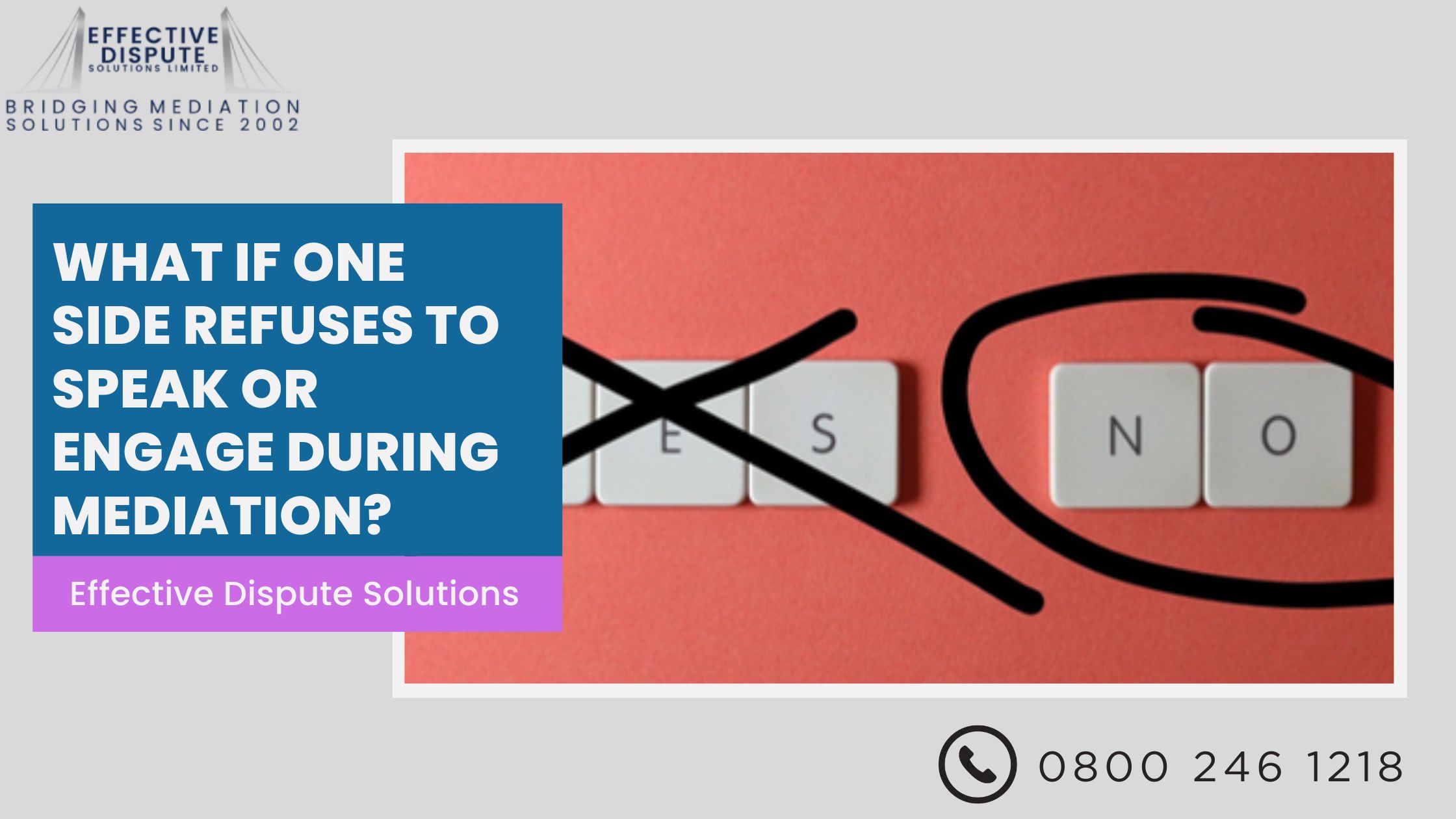Mediation in the UK is supposed to be a way forward. But sometimes it feels like you have hit a brick wall. A refusal to engage during mediations can stop the whole process in its tracks. It is frustrating for anyone who wants to resolve a conflict.
Mediation works only when both sides are willing to talk. If one person shuts down or refuses to take part, things stall. It can make people wonder if the whole process is worth it.
Still, not all refusals come from bad faith. Sometimes the person is nervous or not ready to face the issues. This is where a skilled mediator steps in. They know how to handle these things and get the conversation going.
Understanding the Refusal to Engage in Mediations
When one party will not engage, it is a major roadblock. The reasons can vary. For some, it is a strategy. They stay silent as a way to hold control or show disapproval. For others, the refusal comes from emotion. Anger, fear, or anxiety can shut a person down. They may feel unheard, misunderstood, or too upset to speak clearly.
Some may also refuse because they do not believe mediation will help. They may feel their case is strong enough for court and see no need to compromise. Others are put off by the formality of the process or by sitting across from the other party. The reasons are many.
A good mediator looks beneath the surface. They try to understand why the person is holding back. It is not just an obstacle. It is a signal of deeper concerns that need to be addressed.
What Happens if One Party Does Not Attend Mediation?
Not turning up at all is different from refusing to talk during the session. If someone does not attend, the mediation cannot happen. The mediator will confirm the absence and cancel the session.
The reasons for not attending are often the same as refusing to engage. Some people think there is nothing to gain. Others simply want to avoid conflict.
In the UK, a refusal to attend can have legal consequences. Mediation is voluntary, but the courts often encourage it. A judge may take a poor view of someone who refuses without good reason. Even if they later win in court, they could be ordered to pay the other side’s legal costs. That risk alone makes attending worth serious thought.
Engaging in Mediation
Some people have this common question: Do I have to engage in mediation? The short answer is no, unless a court orders it. There is no general legal duty to engage in mediation in the UK. Still, there are risks to ignoring it. As explained above, courts can penalise a refusal.
From a practical view, it is usually the better path. Mediation is private, flexible, and cheaper than a drawn-out case. It gives you a chance to be heard and to hear the other side, too. A judge cannot always craft a creative solution. Mediations can.
If you choose not to engage, you hand control to the court. The judge decides. You lose the chance to rectify the outcome. You may also end up spending more time, more money, and more emotional energy.
The Role of Mediators in a Standoff
Mediators play an active role when things get stuck. They do more than watch the silence. Their job is to move the process forward. Here is how they usually help:
- Caucusing: The mediator may separate the parties into different rooms and speak privately with the reluctant person.
- Building trust: They ask open and gentle questions. This helps the person feel safe and willing to share.
- Validating emotions: Mediators acknowledge feelings and make sure the person feels heard and understood.
- Staying neutral: They do not take sides. Instead, they explore why someone is holding back.
- Reframing the situation: The mediator helps the party see possible benefits in engaging.
- Breaking the ice: Even a private chat with a neutral professional can be enough to get things moving again.
How to Deal with Difficult People in Mediation?
Dealing with a difficult person is never easy. The key is to stay calm. Try not to let emotions lead your reaction. Keep your goals in mind.
One helpful tip is to use “I” statements. Say “I feel upset by this” instead of “You upset me.” This avoids blame and lowers the chance of an argument.
Trust the mediator to guide the process. They are trained to handle conflict. If someone is being difficult, the mediator will step in. They create a safe space for you to speak without fear.
They may also help you see where the other side is coming from. You do not have to agree, but understanding can help. It may open the door to solutions you had not thought of.
What Happens If One Doesn’t Agree on Anything During Mediation?
Not every mediation in the UK ends in agreement. Sometimes it just does not work out. If both sides remain apart, the mediator will call an impasse. That means no deal has been reached.
At this point, you may need to look at other routes, such as arbitration or litigation. A mediator cannot impose a solution on you.
Still, a failed mediation is not a waste. You may learn more about the issues. You may narrow down the points of disagreement. So, stop worrying about what happens if we can’t agree on anything during mediation. You get a clearer sense of your case and the strengths or weaknesses of it. That can be valuable if the case goes to court.
Conclusion
Refusing to engage in mediation is tough. It can stop progress and leave people feeling stuck. But it does not have to be the end. With the right mediator and some patience, the silence can often be broken.
Mediation is almost always a better choice than court. It saves money, time, and stress. For over twenty years, Effective Dispute Solutions has been helping people in the UK handle these challenges. We know how stressful and costly disputes can be. Our mediators have helped thousands of clients avoid court and tribunal action.
With our broad coverage across the UK, we can come to you or run the mediation online. Most of our mediations are arranged within just one week. We aim to make the process smooth and effective. Even when it feels like there is no way forward, mediation can provide one.


